There is overwhelming evidence that socially, environmentally and economically, women are disproportionately affected by mining, gas and oil projects. And while men reap more of the benefits from them, women endure more of their negative impacts.
To mark International Women’s Day, eight inspirational women from our global movement share insights about their lives on the frontlines of trying to transform the oil, gas and mining sectors.
They talk about their common goals of trying to improve transparency, and root out corruption and mismanagement, and also reveal the barriers they face, and what inspires them.
The extraordinary women we’re highlighting are:
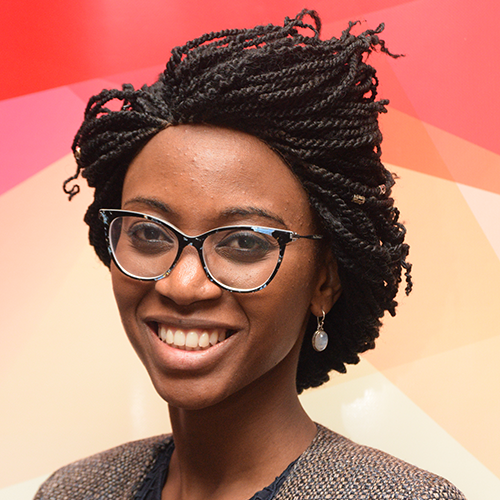
Chenai Mukumba, Zambia.
Chenai is one of Zambia’s most dynamic and respected advocates in the struggle to ensure that her country’s natural wealth benefits all its people. As Chair of PWYP’s Global Council, she is committed to promoting gender equality, so that women’s voices and experiences are no longer ignored by the extractive sector. Chenai is also the Country Coordinator of the Consumer Unity and Trust Society (CUTS) International, Lusaka, which is the Southern Africa office of the CUTS global research and advocacy think-tank. She is responsible for leading all research and policy advocacy work related to CUTS’ programme areas and sits on various technical working groups and committees at the Ministry of Commerce, Trade and Industry and Ministry of National Development Planning. Prior to this she worked as a Policy Analyst at CUTS’ Centre for Trade, Economics and Environment in India and the World Trade Organization where she spent time in both the Agriculture and Development Divisions.
“I was passionate about writing and research for as long as I can remember. It was during my university years, however, that I realised I could combine this passion with my desire for social and economic justice, and use it as a tool to advocate for change.”
Women’s contribution and participation in the artisanal and small-scale mining (ASM) sector is frequently unrecognised and underappreciated, which can have serious negative consequences.
In some countries, the ASM sector is a significant contributor to the extractives sector, however it is often side-lined in policy-making. In Ghana for example, the ASM sector contributed 31% to national gold production in 2016. Yet women’s participation in artisanal and small-scale mining is often fraught with discrimination, which prevents them from deriving the maximum benefit from it. A range of norms and taboos limit women’s participation in various aspects of ASM and women are often concentrated in the least remunerated work areas. This is despite the evidence showing how women’s ASM-related earnings are increasingly supporting families and creating new economic opportunities for them.
One of the biggest barriers I encounter is dealing with people who think that I can’t possibly be facing any barriers because I’m a woman running an organisation. Even in my position I’ve found that there are still so many barriers to tackle – which can be more difficult in some ways, as they are more intangible. I’ve faced many situations where advantages men have, such as being given the benefit of the doubt, are not afforded to me when I walk into a room. Before I even say anything, I often need to prove that I’m worthy of being in that room, and only then are my submissions taken seriously.
Regardless of how bleak the future looks at times, it is so important to never become disillusioned and to always have hope that things will get better.”

Emily Nickerson, Canada.
Emily is at the vanguard of civil society’s attempt to hold Canada’s extractive sector to account. As Director of PWYP Canada, she works to increase transparency in the country’s mining sector – which is one of the largest in the world – so that people can hold their government to account for how their natural resource wealth is managed. Prior to joining PWYP, she was the Director of Programmes at the Mining Shared Value (MSV) initiative of Engineers Without Borders Canada. Her work at Mining Shared Value included leading partnerships to push for more local procurement transparency.
“Growing up in a province that depends heavily on natural resources to support the economy, I saw the importance of strong governance – and what can happen when governance is weak, particularly in terms of corporate capture by the economic elite, which results in people lacking access to the services they need.
Extractives – both at corporate and site levels – continue to be very male-dominated. This poses countless challenges, both for the women who work in these environments, and those who live in communities around the projects. Among them are the increased risks of harassment and assault, as we still live in a society which continues to heavily sexualise women, and cases are underreported. Police do not adequately uphold the rights of victims and few men are held accountable for their actions.
For many reasons – including the extra care giving responsibilities we have, and our under-representation in politics – women still have a limited role in decision-making. In the extractive sector, this can specifically range from decision-making about approving projects, to how revenues are spent. Women are not engaged enough – or at all in some cases – in deciding the development plans of their communities and how the impacts of projects, such as mines, should be managed.
As a young women working in a very male-dominated field, I have encountered many conscious/unconscious biases while working with colleagues and partners. For instance, some of the small things that I frequently face include being told that because I am a woman, I am organised, or being assigned to take notes in meetings.
I have had to counter some of the barriers I have faced by being more forceful in meetings (and not worrying about how it is perceived). If I have a more junior colleague in the room, I make sure that I specifically ask them to take notes; I am more careful about how I dress at conferences.
I am inspired by other ambitious women who are changing this sector. Sometimes it can feel very lonely facing these issues and it they who re-energise, inspire, and motivate me to keep pushing.”
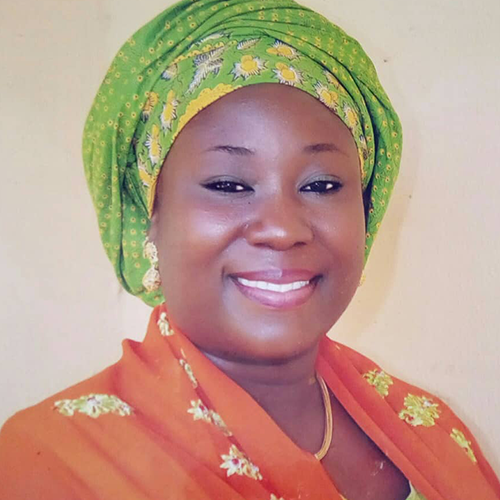
Erisa Danladi, Nigeria.
Erisa brings a vast and diverse range of experience – as a farmer, a community development expert and entrepreneur – to her role on PWYP’s Africa Steering Committee, and to her work on the frontline of supporting communities affected by mining. She has worked as a consultant and volunteer for a wider range of organisations, and as well as her expertise in human rights, health, socio-economic and environmental issues, Erisa holds a master’s degree in Dramatic Literature and Criticism, a Phd in Theatre and Community Development, and is a Graduate of the Nigerian Institute of Management.
“My family, and my father in particular, inspired me to be the best I could be when I was growing up. I’m fortunate to come from a family where there was a lot of educational support, especially for girls, which isn’t always the case in Nigeria
Initially I wanted to study law, because I wanted to advocate for the vulnerable children in my community. I wanted to be their mouthpiece, but I changed course and ended up studying Theatre and Communication Arts. I have found that I am able do more for my community because of this – not just children – but women and young people too.
The persistent gender inequality within the extractive industries continues to undermine women’s potential and rights, particularly in communities affected by mining, where women see less of the benefits.
In my community, women face many challenges and barriers, including around their health. For instance, women in the Maiganga community have been infected by dust from the coal mine. The drinking water has been contaminated, which has led to them losing their babies at early pregnancy.
Women are excluded from consultations about mining projects, even though they are the most affected by them. This is compounded by the inaccessibility of information and a lack awareness of their rights, though with increased sensitization it has improved a little.
As a young passionate woman, I face a lot of challenges, but especially being looked down on, because of my age and gender. But I am inspired by the idea of posterity: I want to leave a society where children, young people and women benefit from the natural endowed blessings from the ground, from the earth, in other words, the extractives.”
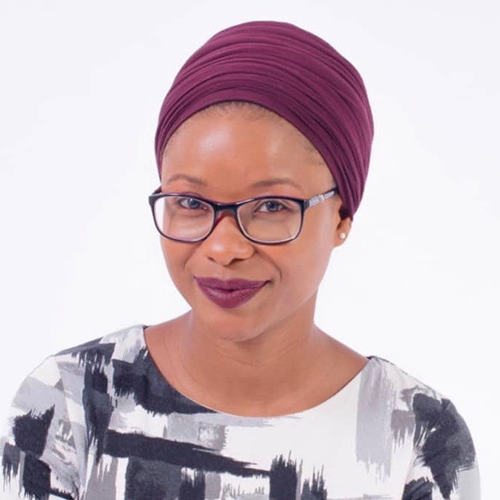
Gloria Majiga, Malawi.
Gloria has become internationally renowned over the past five years working as an environmental activist on mining, forestry, land, and climate-related issues. As the National Coordinator for PWYP Malawi, she works tirelessly to help empower communities affected by mining. Gloria believes that greater accountability and transparency in the industry is a pre-requisite for communities to be able to engage in the discussions about the policies which impact their lives, and the key to achieving social justice. Gloria is currently working with communities to enhance their skills to use tools such as Free Prior Informed Consent and Environmental Social Management Plan monitoring. In 2019 she won a Mandela Washington Fellowship to Kansas University.
“I was studying for my undergraduate degree when one of my lecturers, Dr Chiweza, inspired me to develop my interest in inclusive development and public policy processes. She was one of the few women in Malawi involved in good governance research.
I chose to focus on the extractive sector as it was expanding, and Malawi was about to join the EITI.
For a long time, the sector has been male-dominated, and the environmental and social burdens have rested on women, who receive none of the economic benefits.
The extractives industry is plagued by unsustainable practices which upset the balance of nature. This can deny people the water and forest-based resources they need to survive. Women’s limited involvement in mining also means that their loss of livelihoods is not cushioned by an alternative source.
One of the biggest barriers I face working in the extractives industry is the perception that I’m there to fulfill a quota, that I am in a room full of the ‘experts’ – who are men – to simply tick a gender box.
I often have to start from a place of proving that I’m just as good and capable as the man who ‘earned’ his seat at the table. The best advice I ever received to overcome this, is to show up and get the work done! To trust in my abilities and have the confidence to sit at the table and eat too.
The incredible strength and resilience of women is what gives me the hope that we can reframe the narrative, and add our voice to it no matter how long it takes us.”

Diana Kaissy, Lebanon.
Diana’s journey has been extraordinary: from regional coordinator for the PWYP MENA region, to leading the development of a new NGO in Lebanon, and being selected onto the EITI International Board in 2019. She is the Board’s first ever civil society representative from the MENA region. As Executive Director of the Lebanese Oil and Gas Initiative-LOGI, the independent NGO in Beirut, Diana promotes transparency and accountability in the petroleum sector in Lebanon. In 2018 she was awarded Client of the Year by Leadership Management International.
“The idea that collective action could provoke positive social change captivated me before my interest grew in how to make this happen in the extractive sector.
In Lebanon, one of the disproportionate impacts that the extractive sector has on women is in employment. Men have more job opportunities than women. Our Labour Law, for example, contains articles which prohibit women from working in “hazardous” jobs that include, but aren’t limited to, mining and quarrying, which leads to a striking imbalance between the genders. So one of the main things we are currently working on is ensuring that an equal opportunity employment policy exists to safeguard female participation in Lebanon’s oil and gas sector.
The biggest barrier I faced, especially in the MENA region, was the extra effort I had to put in to establish myself as a credible source of information, so that coalition members – with many being male-led NGOs – would take me seriously and listen to my advice and follow my guidance. Building up my knowledge and expertise in key areas that I knew the coalition needed support on, helped me gain credibility.
What inspires us to continue and gives us hope that change – and breaking the norms – are possible, is seeing the work of our colleagues in the PWYP movement. Making a lasting impact through collective action inspires us to go beyond our limits.”
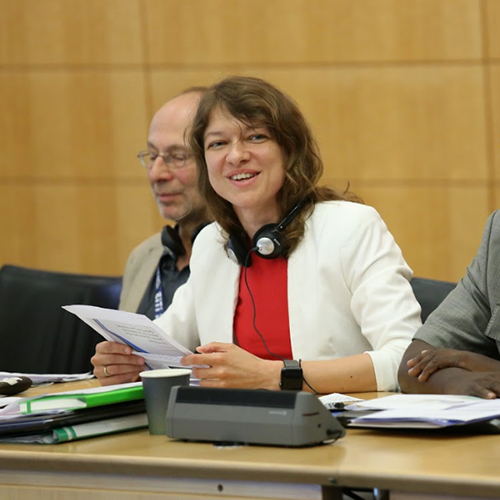
Olena Pavlenko, Ukraine
Olena is one of the most respected figures in Ukraine’s attempt to reform its energy sector. Over the past decade she has dedicated herself to trying to strengthen the industry’s transparency, improve its governance and make policy-making processes more accessible to the wider public. Olena is President of the DiXi Group, a Kyiv-based think-tank specialising in research and consultations in the energy sphere. She is also member of PWYP’s Steering Committee representing Eurasia, and Deputy Chairperson of the Multi-Stakeholder Group (MSG) on the EITI.
“I’m inspired by the people around me. I think all of us have people – parents, friends or loved ones – who inspire us creatively, or in our ambitions. I’m also inspired by my team in DiXi Group, who are devoted to making positive changes in the Ukrainian energy sector, by pushing for better governance and more transparency.
When people hear the word ‘extractives’, they usually think about drilling rigs and men in helmets. I think this stereotype puts many women off from working in the sector. As a result, when our thinktank tries to engage more women-experts to work on issues around governance, it can be a real challenge – although those we have found are really great, and very smart. To ‘survive’ in a male-dominated environment, women have to work much harder and achieve far better results. And even if they do so, it doesn’t guarantee that they will get the recognition they deserve and or promotions.
Another of the barriers women face is a lack of time to be able keep up with all tasks planned. Ukrainian women – and I believe not only Ukrainian – are multitasking, which is of course great, but this often means women are tired, and leaves little time for rest.
There are still huge stereotypes of what successful women should be like. This often harms them, make them feel less valuable and unhappy. It’s very important to break these stereotypes through women communicating and cooperating with one another.
In Ukraine, we have very active women-politicians, who created a special group in the Parliament, and who advocate for the creation of a Gender Ombudsman in the Government. We also have the Women Energy club, which unites women working in the energy sector of Ukraine. Of course, there is still so much work to do, but it’s good to see that people around are ready to support.
In these challenging times, it is the people around me who inspire me to never give up.”
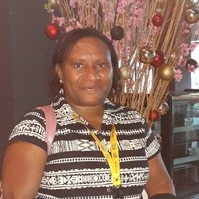
Wallis Yakam – Papua New Guinea
Wallis has dedicated her working life to improving the lives of those impacted by Papua New Guinea’s gold, copper, nickel, silver, cobalt, oil and gas industries. For years, these sectors have brought conflict, grievances and pollution to the communities living near their operations. Wallis has been at the forefront of changing this, by protecting people’s rights and trying to improve governance in the sector, for 7 years. She is currently the Executive Officer of the Consultative Implementation and Monitoring Council (CIMC), and has a wealth of public policy and governance experience. She is also a member of PWYP in Papua New Guinea – called the Papua New Guinea Resource Governance Coalition which is housed under the CIMC, and in that role is helping to coordinate and facilitate civil society participation in the EITI process.
“I am inspired by my colleagues in CIMC, as well as those individuals I meet who do amazing work in promoting good governance in my country and elsewhere around the globe. My organisation taught me to champion the voiceless, so that they can be an integral part of developing and implementing public policies. These vulnerable groups include: women and youth, disabled people, people living with HIV and AIDS, as well as those who are illiterate, or live in remote parts of the country.
PNG is rich in extractives, but the benefits are not shared equitably. Trying to tackle this is one of the main parts of my work.
Because women have been undermined, they lack voices at all levels. The consequences include that they do not get their fair share of the benefits from mining, whether in royalty payments, participation in spin-off businesses, or employment. Very few women have been given opportunities.
However, investors in the country have recognised this, and have created initiatives promoting women’s participation. Some investors are also, at last, promoting women into management roles. The number of women taking up jobs that were previously reserved for men, like supervision of underground mining, is increasing. I am now creating a national platform to ensure that women’s participation in the extractive sector is part of our national policy.
One of the major barriers for women in my country, is that society is mainly male-dominated. I grew up in a male-dominated community, where women and children don’t have any role at all in decision-making.
As a child, I was trained not to question men’s decisions. Boys inherit our fathers’ land, and women have to migrate to their husbands’ land when they marry. This essentially made us second-class citizens in our own country.
I guess I have broken gender barriers in my society. The most common I still come across derive from our culture and traditions. Until, and unless, we break those barriers through innovative initiatives, including showcasing women role models and telling their stories, women will continue to face severe obstacles.
I draw hope that these can be overcome by all the women in my country, as well as in our network around the world, who continue to bravely advocate for greater transparency and accountability in the extractive sector.”
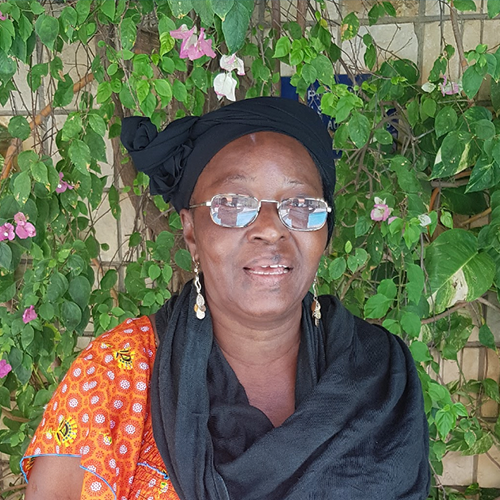
Françoise Pioupare, Burkina Faso.
Françoise has made a significant contribution to the lives of women impacted by mining in Burkina Faso. A former bank executive, she is a member of the PWYP coalition Burkina Faso, and is responsible for gender and climate change issues. As a Gender Officer for the Land Tenures, Forestry of the TENFOREST project, Françoise supports women in rural areas to achieve land security through legal means. She is also part of the EITI national multi-stakeholder group in Burkina Faso and involved in monitoring the EITI process in the country, which has one of the most dynamic mining sectors in West Africa. Françoise is contributing significantly to the implementation of PWYP’s gender agenda to advance women rights in the extractive sector.
“I was inspired on my career path because I wanted to help strengthen women’s political rights in Burkina Faso, as well as their poor socio-economic status in general. This is particularly true in rural areas, where women are discriminated against through a lack of opportunities.
Whether the mining is industrial or artisanal, women are not benefiting as they should from it. They neither own nor control the land, and the majority of them have no decision-making power over how this land is productively used.
Land which is allocated by the government to the extractive industries is compensated, but this compensation is generally paid out to men, often the heads of households and / or landowners, who sell or rent their land to those who exploit the land or artisanal miners.
This means that women no longer have access to the land for farming, or for gathering herbs, food and other products that grow naturally in forests. The consequence is that food insecurity, and poverty are intensified.
Despite these barriers, I remain convinced that the majority of our women, both in rural and urban areas, will enjoy the full socio-economic and political rights that they deserve in the near future.”










